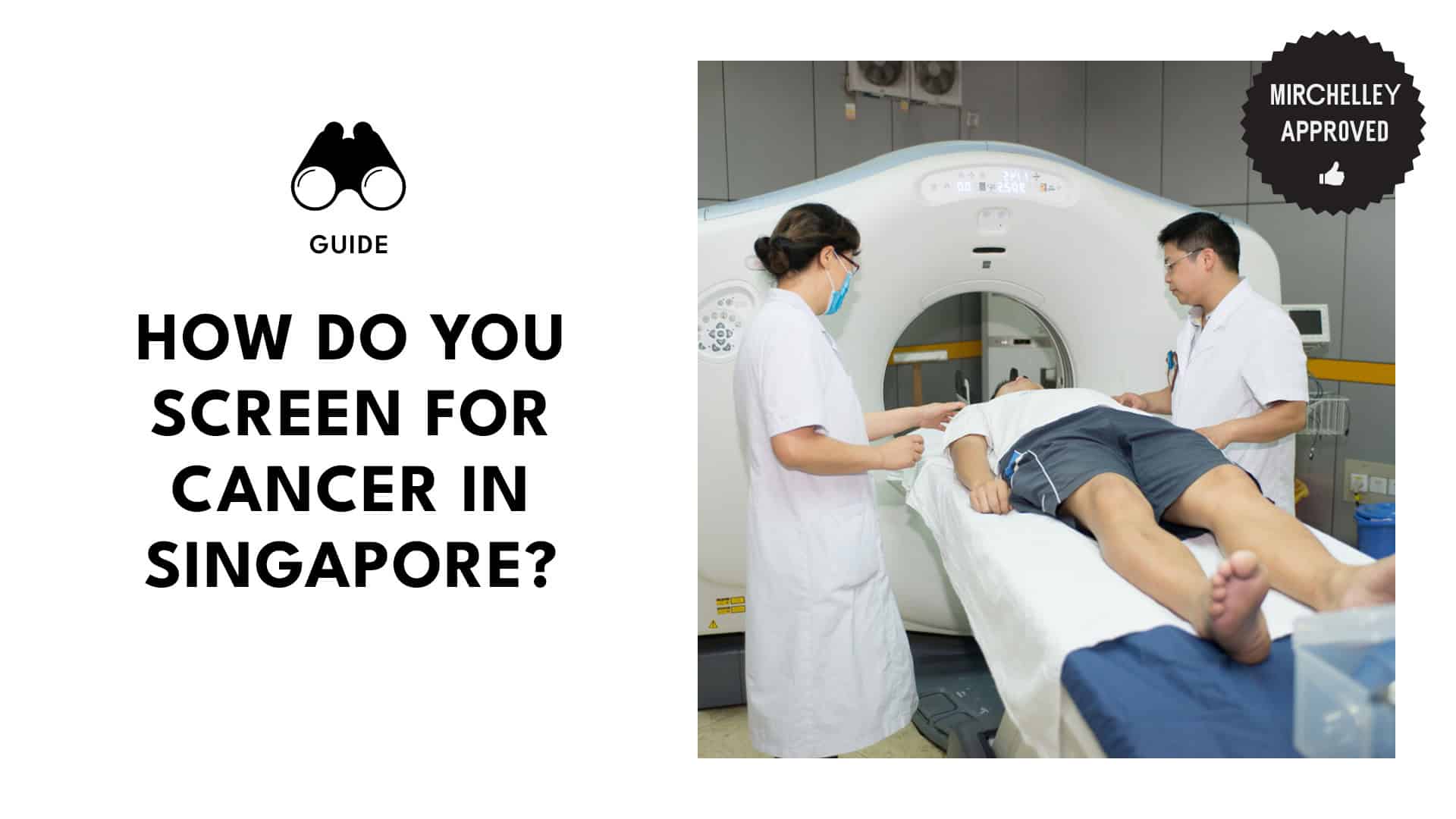Categories > Guides and Tips

The Insider’s Handbook to Cancer Screening in Singapore
Let’s face it, cancer screenings can be intimidating. The whole process can feel shrouded in mystery, leaving you with more questions than answers.
You might imagine long waits in sterile clinics, needles galore, and results that leave you hanging.
But here’s the truth: cancer screenings are nothing to fear. In fact, they’re your best weapon in the fight against the disease.
This handbook will be your friendly guide, demystifying the entire process. We’ll break down the different types of screenings available in Singapore and walk you through what to expect at each step.
By the end, you’ll be a screening pro, ready to take charge of your health.
What screening tests are available for cancer in Singapore?

In Singapore, available cancer screening tests include mammograms for breast cancer and Pap smears for cervical cancer.
There are also Faecal Immunochemical Tests (FIT) for colorectal cancer, low-dose CT scans for lung cancer, and ultrasound with Alpha-Fetoprotein (AFP) tests for liver cancer.
These tests help detect various types of cancer at early stages, improving treatment outcomes. Let’s discuss each one of them further.
Mammogram
One of the best ways to stay on top of breast health is by taking a mammogram test. This crucial screening tool in the country is recommended for women aged 50 and above every two years.
Each breast is compressed between two plates to spread the tissue and obtain a clear image during this test. This might sound a bit uncomfortable, but the benefits far outweigh any temporary discomfort.
The radiologist then examines the X-rays for any unusual areas that might indicate the presence of cancer.
It’s important to note that if anything unusual is found, it doesn’t necessarily mean you have breast cancer. It simply means more tests are needed to make a definitive diagnosis by your oncologist in Singapore.
Pap Smear
For women aged 25 to 29 in Singapore, the Pap Smear is recommended to be taken to detect early signs of cervical cancer.
During this test, your doctor gently collects cells from your cervix using a small brush or spatula. You might feel a bit stung, but it’s usually over in a few minutes.
These cells are then examined under a microscope for abnormalities that could indicate precancerous or cancerous changes.
Faecal Immunochemical Test (FIT)
This test is a vital screening method recommended annually for men and women aged 50 and above in Singapore.
The Faecal Immunochemical Test (FIT) checks for hidden blood in your stool, a possible indicator of colorectal cancer even before symptoms manifest.
Usually, the medical technologist will just give you a FIT kit designed for convenience.
You can collect a small stool sample at home without hassle or special preparation. Once collected, you may send it to a lab for analysis within 30 minutes to 1 hour.
If the FIT results are positive, a colonoscopy is usually the next step. This procedure allows doctors to view the entire colon and remove polyps if necessary.
Low-Dose CT Scan
This specialized imaging test is like a detailed snapshot of your lungs, allowing doctors to spot tiny abnormalities that could signal the presence of cancer cells.
A low-dose CT Scan is highly recommended for heavy smokers aged 55 to 74 years old.
During the scan, you lie on a table that slides into a large, doughnut-shaped machine. It’s painless and doesn’t take much time—usually just a few minutes.
It uses less radiation than a regular CT scan, making it safer for repeated screenings over time.
Ultrasound and Alpha-Fetoprotein (AFP) Test
These tests are game-changers because they catch liver cancer early when it’s treatable and beatable.
The ultrasound uses sound waves to create images of your liver, allowing doctors to see if there are any abnormal growths or changes.
It’s painless and noninvasive so you won’t feel anything during the procedure.
Steps to Take for Cancer Screening in Singapore

Visit a general practitioner and obtain a referral form.

The first step is to visit your general practitioner (GP) and mention everything that’s bothering you, even if it seems small. This information is crucial for your GP to understand your health situation fully.
If your GP believes you need further screening, they will give you a referral form. It directs you to the appropriate specialist or screening center, ensuring you get the care you need from some of the best oncologists in Singapore.
Contact a preferred screening center.

So, you’ve got your referral form in hand—what’s next? It’s time to choose a screening center in Singapore that suits you best!
Singapore offers a variety of options, from public hospitals to private clinics, each offering different services and perks.
If you prefer comprehensive care and trust in large institutions, places like Singapore General Hospital or National University Hospital might be your top picks.
These hospitals are known for their thorough cancer screening programs and the expertise of their medical teams.
On the other hand, private clinics could be the best option if you’re looking for more personalized care or need quicker appointments.
Remember, what matters is to feel comfortable with where you’re going.
Follow any pre-screening preparation.

Depending on the type of screening you’re scheduled for, you might need to follow some preparation steps.
Fasting might be on the menu, not for a diet but for specific tests like blood work. Your doctor might ask you to fast for a specific period before your appointment to get the most accurate results possible, so your stomach might need to take a little break.
There are also medication adjustments. Your doctor might recommend that you temporarily stop taking certain medications before your screening.
These are all to ensure that everything goes smoothly and that the results are as clear as possible.
How is cancer diagnosed in Singapore?

In Singapore, cancer can be diagnosed through testing methods like physical examination, laboratory testing, imaging testing, and biopsy.
If your general practitioner finds any symptoms that need further investigation, they’ll refer you to a specialist or a screening center for more detailed tests.
After confirming a diagnosis, your doctor will determine the stage of the cancer and the extent of its spread.
This will help formulate a tailored treatment plan incorporating the latest treatment options available and help the doctor forecast a likely outcome of your condition.




